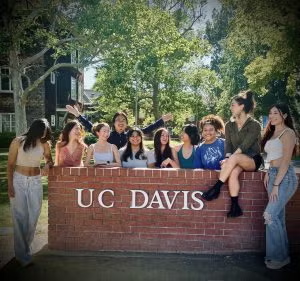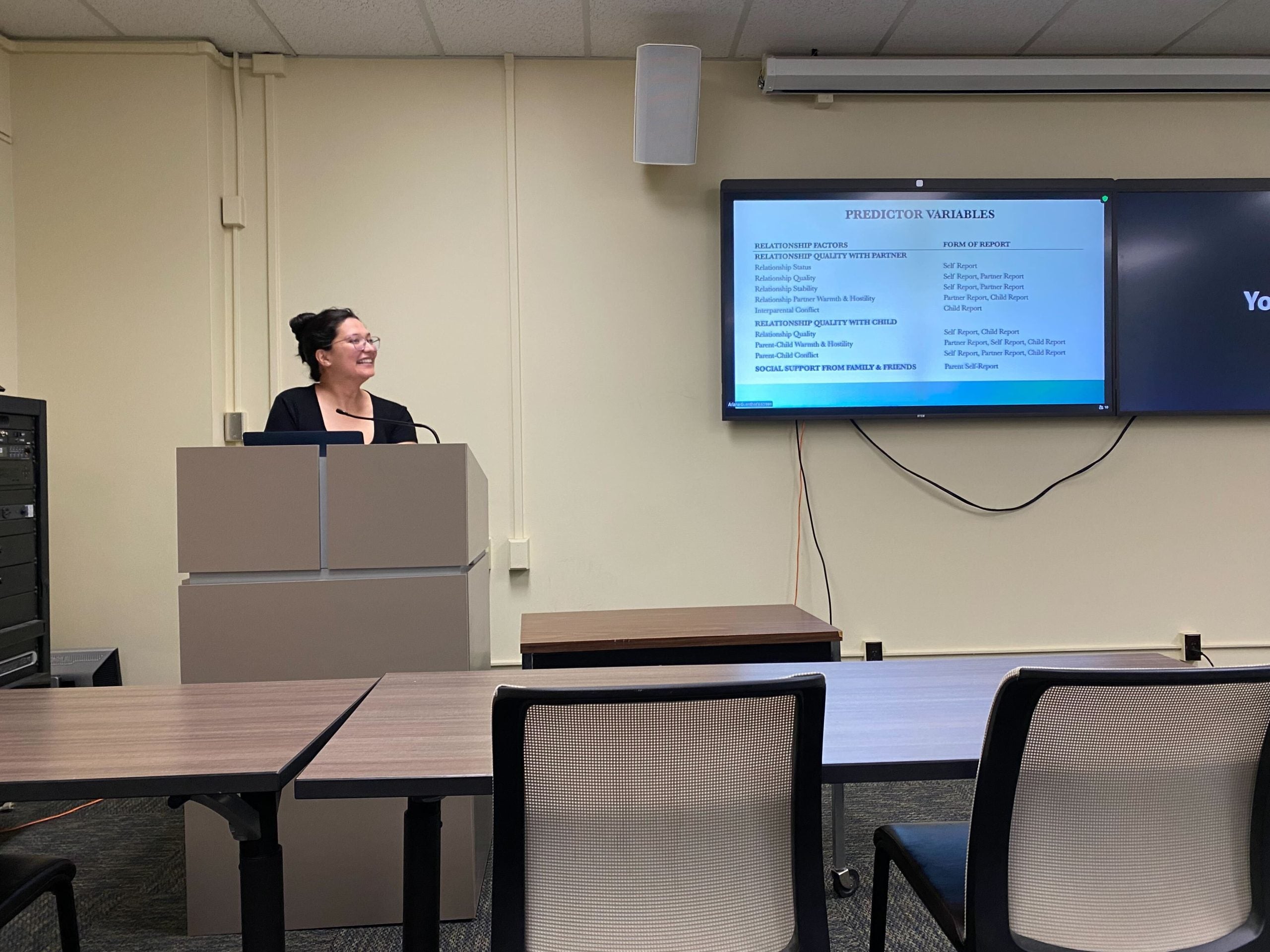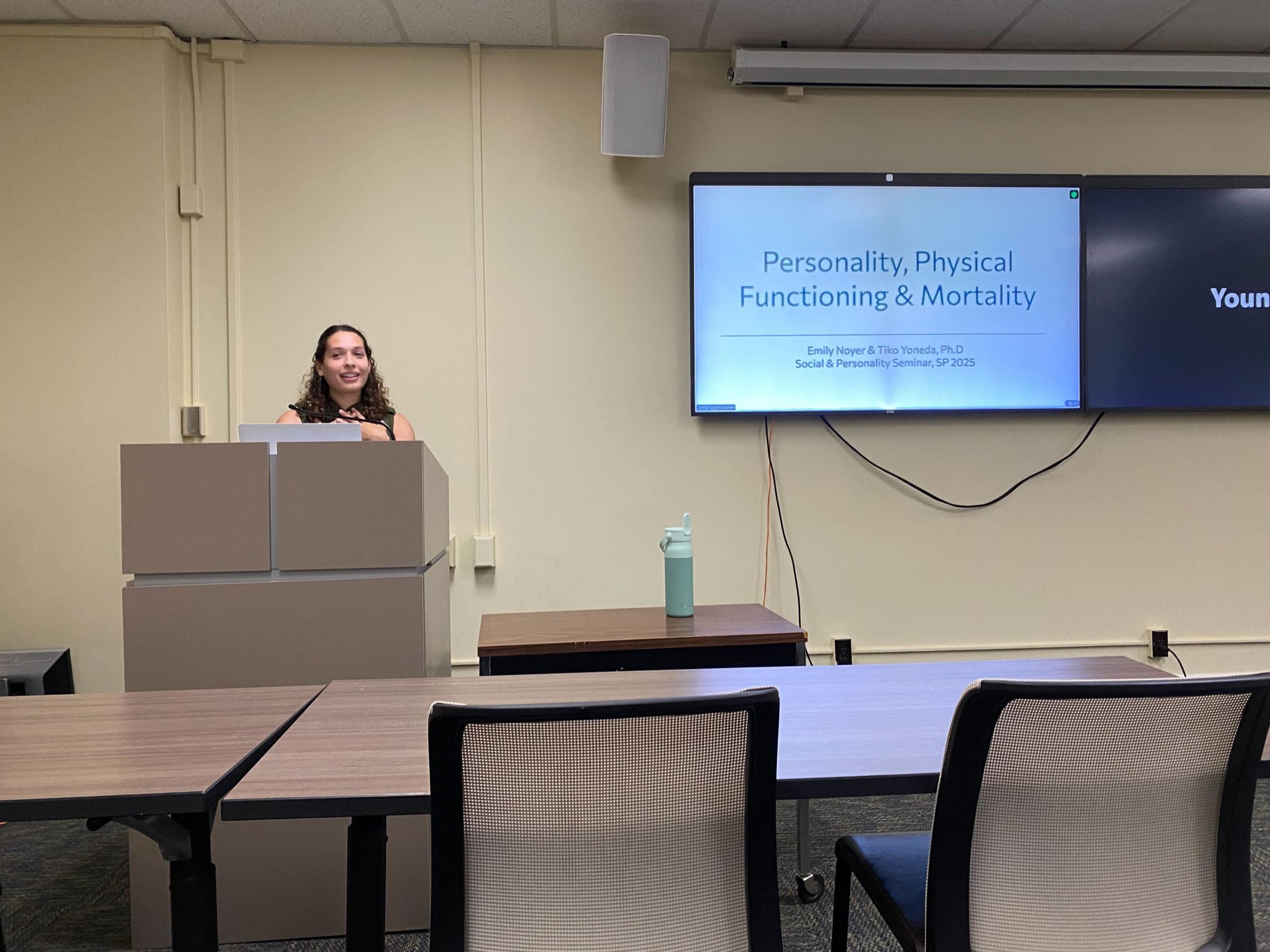The Healthspan Lab focuses on the importance of personality traits and individual differences for physical and cognitive healthspan in older adulthood.
Grounded in Baltes’ theory of successful aging (1987), we strive to understand factors contributing to cognitive aging processes and optimal development across the lifespan. This work focuses on the interplay between personality and physiological factors, and how these associations vary across time, contexts, countries, and cultures. That is, under which circumstances, for whom, and how do psychological factors influence physiological and cognitive processes, and vice versa.
Recurring themes throughout this research are (a) advanced methodologies effective for modelling repeated assessments and dyadic data at various time-scales, and (b) use of multi-method data, including self-report, objective data (e.g., accelerometer), neuropathological indicators, and physiological markers (e.g., blood pressure). Further, we are committed to both (c) Team Science, which involves working with scholars from various disciplines, institutions, and countries, and (d) Open Science, particularly transparency, preregistration, and large-scale conceptual replication across countries and cultures.
Dr. Yoneda and The Healthspan Lab are enthusiastically recruiting a graduate student to start in 2025. If the content included on this website resonates with your research interests, please reach out: yoneda@ucdavis.edu

Research Spotlight

Dr. Yoneda presenting at the 2024 American Psychological Society (APS) Convention in San Francisco. In this work, we investigated whether we could detect co-experienced positive emotions in the daily lives of older, cohabiting relationship partners (321 couples from Canada and Germany, assessed 5-7 times per day for 7 days). Our findings show that older relationship partners report co-experienced positive emotions on approximately 40% of occasions, and further on occasions when both relationship partners report higher positive emotions compared to themselves, they have lower momentary cortisol secretion.

Olivia Duchow presenting her independent study project at the 2024 UC Davis Undergraduate Research Conference. In this work, Olivia identified 12 measures from the existing literature that have been used to assess generativity and ego integrity. She used artificial intelligence to identify identical or very similar items that were repeatedly administered to participants of the Memory and Aging Project. In follow-up work, Olivia will test the psychometric properties of this scale (discriminate validity, test-retest reliability), in addition to investigating the links between generativity/ego integrity and a range of health outcomes, including dementia diagnosis and mortality risk.

Healthspan Lab grad student Ariana presenting on her First-Year projects during the S/P research seminar.

Healthspan Lab grad student Emily presenting on her First-Year projects during the S/P research seminar.
A very big & special thanks to Ni’Jah, a Healthspan Research Assistant, who created the first version of this website, as well as to Jenny Xu and Remi Suzuki for keeping the website up-to-date <3
